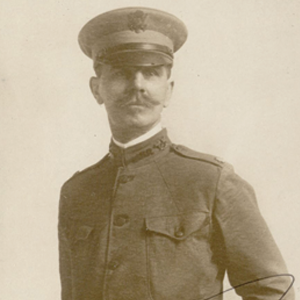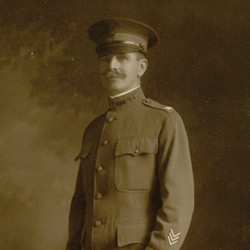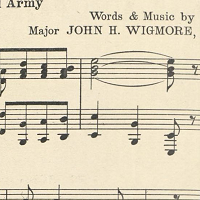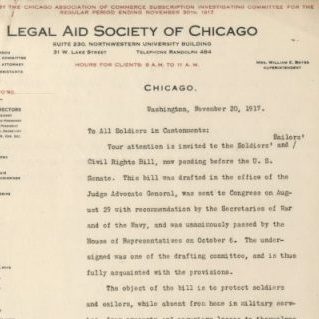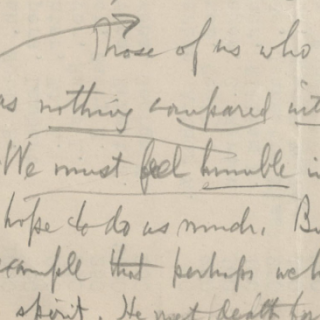Photograph of Wigmore in His Major Regalia, ca. 1917
In 1913, John Henry Wigmore became acquainted with General Enoch H. Crowder, the Judge Advocate General of the United States Army, when the general initiated a program that would allow officers of the U.S. Army to attend the Northwestern University School of Law....
Photograph of Selective Service, 1918
When the United States entered World War I, they lacked the number of enlisted men necessary to contend with the armies of Europe. Therefore, though conscription was controversial, it was a necessity. On May 18, 1917, President Woodrow Wilson signed the Selective...
Photograph of Wigmore in his Colonel Regalia, 1919
In 1918, Major Wigmore was rewarded for his service in the Judge Advocate General’s Corps with not one, but two promotions. The first, in February, was to lieutenant colonel; the second, in July, was to colonel. Manley Hudson, in “Recollections of John...
Writings
“We’ll See Them Through” Score, ca. 1917
"We'll See Them Through" https://sites.northwestern.edu/plrcwwi/files/2017/03/WellSeeThemThrough-2dxfv7j.mp3 During World War I, musicians of all stripes turned their attention to war themes, producing a body of music that reflected and cultivated a...
Letter from Wigmore for the Legal Aid Society of Chicago, 20 November 1917
While serving in the Judge Advocate General’s Office, Wigmore was involved in drafting the Soldiers’ and Sailors’ Civil Relief Act (SSCRA) of 1918. The SSCRA protected those serving in World War I from certain civil lawsuits, including repossession of property,...
Eulogy for Benjamin Wohl by John Henry Wigmore, ca. 1918
Benjamin Wohl was one of nine Northwestern Law students who gave their lives serving in the war. Wohl trained with the Air Service in Champaign, Illinois and in Egypt before his deployment to France. During his early days in Europe, Wohl’s squadron was tasked with...

